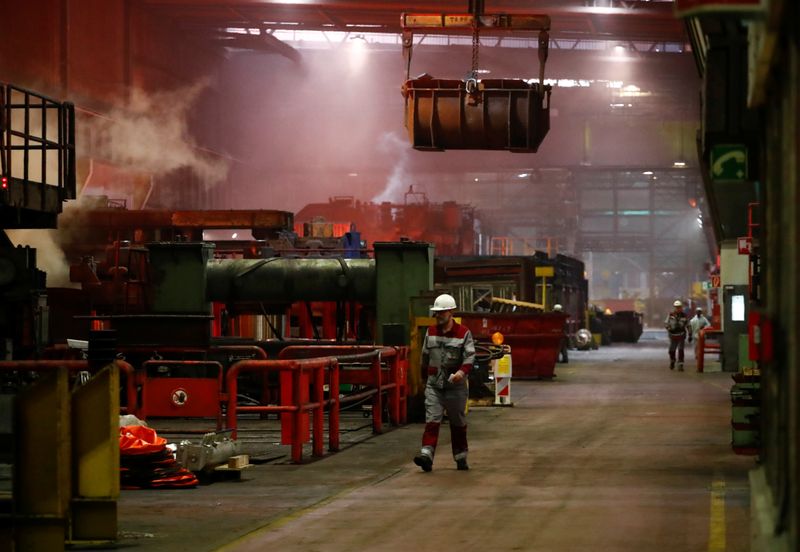BERLIN (Reuters) – German industrial orders grew less than expected in September as euro zone orders dropped, data showed on Thursday, highlighting the tough journey Europe’s largest economy faces to recover from the coronavirus shock.
Industrial orders rose 0.5% in September, less than the 2% analysts had expected, partly because bookings from other members of euro zone fell by 6%, offsetting expansion in both Germany and the rest of the world.
A purchasing managers’ survey from earlier this week showed that though manufacturing in the euro zone was booming, it was almost entirely driven by Germany’s recovery, highlighting the economic behemoth’s vulnerability to its neighbours’ economic weakness.
Growth slowed from the previous month, when orders were up a revised 4.9% as the economy recovered from the earlier lockdown imposed to contain the spread of the pandemic.
In September, domestic orders rose 2.3% on the month and those from the rest of the world by 2.7%.
“After a first strong recovery following the lockdown in April, industry continues to fight its way out of the crisis,” the Economy Ministry said, hailing the data – which showed the fifth expansion in a row – as a positive signal.
Orders were up a full 29.1% in the third quarter compared with the previous quarter, the ministry said. Domestic demand rose 15.5%, euro zone demand 41.0% and demand from the rest of the world 40.4%.
Last week, data showed the German economy grew by a record 8.2% in the third quarter as higher consumer spending and exports helped it recover partly from its worst-ever recession caused by the COVID-19 pandemic.
(Reporting by Thomas Escritt; editing by Michelle Adair, Larry King)






















